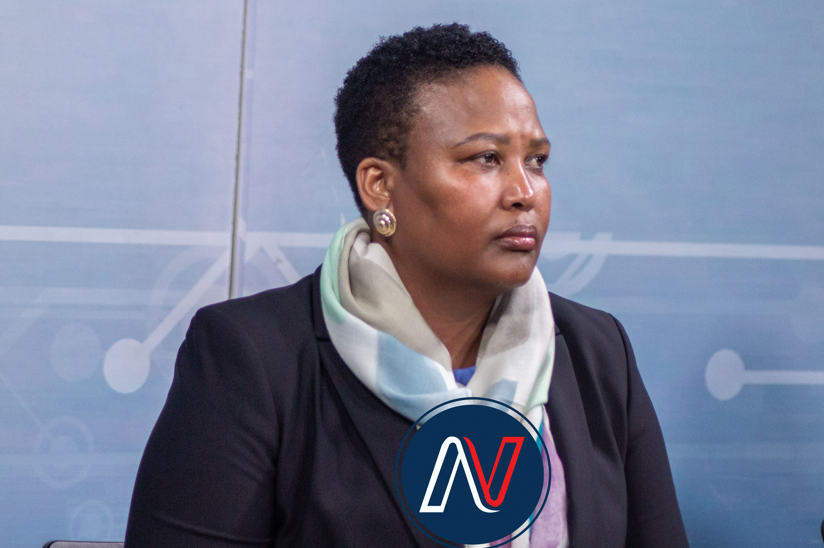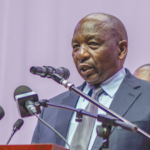Less than a month after Prime Minister Sam Matekane dramatically declared youth unemployment a national disaster, the cabinet has issued a detailed statement of its June 2025 decisions, without a single mention of the crisis.
On June 18, 2025, speaking at the National Youth Dialogue on Unemployment, Matekane announced that cabinet had taken the historic step of declaring youth unemployment a national disaster, following advice from the Disaster Management Authority (DMA) board.
“Let us remember that jobs are created by businesses and investors. The main responsibility of the government is to create a level playing field,” Matekane said last month.
“Unemployment, especially among young people — the government sees it as a crisis. As a result, the Cabinet, on the advice of the DMA, has decided to declare that youth unemployment is a disaster. Relevant ministries are already working to ensure that there is a legal declaration so that the work can start,” he added.
In a country where close to half of the youth remain jobless, the Prime Minister’s declaration was widely welcomed by desperate young people and policy advocates alike.
It was seen as a moment of long-overdue recognition that the youth unemployment crisis is not just a development issue, it is a national emergency threatening Lesotho’s stability, prosperity, and future.
In a statement on June 19, a coalition of youth organisations in Lesotho welcomed “the Prime Minister’s declaration of youth unemployment as a national disaster”, crediting sustained advocacy, peaceful mobilisation, and legal action led by young people for the landmark decision.
“This declaration is a direct result of the united voice of young people from civil society organisations, political party youth leagues, and individuals who came together to demand a bold and lawful action under the Disaster Management Act of 1997,” the youth said.
“With over 48.8% of the youth unemployed, this crisis has claimed lives, dignity, and hope; but today we reclaim the narrative. This is not just a policy win, it is a declaration of truth,” they added.
They further noted that youth unemployment has, for years, been a silent catastrophe, shattering futures through mental illness, poverty, drug abuse, crime, and hopelessness.
Now, they said, it has been officially recognised as a national disaster, one that warrants urgent attention, allocation of resources, and structured recovery efforts.
“We thank the Office of the Prime Minister for hearing the cries of young people and responding to our call. We also honour every young person who stood up, spoke out, and marched forward with courage and conviction. To the youth of Lesotho, this is your victory. To the government, this is just the beginning — not the end,” the statement read.
However, in the cabinet’s official June communique released on Wednesday, which details government decisions on a wide range of issues, from internet governance and international conferences to water laws and funeral arrangements, youth unemployment is nowhere to be found.
The communique was read by the Minister of Information, Communication, Science, Technology and Innovation, Nthati Moorosi.
The June cabinet statement runs several pages, detailing international meetings, internet governance forums, and proposed water legislation.
There is no policy update, no response plan, no budget commitment, and no mention of the so-called disaster declaration.
According to the communique, the cabinet approved several key resolutions during its June 2025 sitting, ranging from internet governance and drought preparedness to water legislation and royal celebrations.
Among the notable resolutions, the cabinet approved government support for the funeral expenses of the late Honourable Justice Winston Churchill Matanzima Maqutu, recognising his significant contributions to Lesotho’s judiciary.
In a move to bolster disaster resilience, the cabinet endorsed Lesotho’s subscription to the African Risk Capacity (ARC) Ltd, which provides insurance for drought response. The aim is to protect vulnerable households and ensure food security in the face of increasingly erratic weather patterns.
The cabinet also gave a green light to Lesotho’s application for membership in the African Network Information Centre (AFRINIC), a continental body responsible for internet resource management. Officials say the move is designed to improve internet governance and cybersecurity across the country.
Water governance featured prominently on the agenda, with cabinet approving the drafting of the Lesotho Bulk Water Authority Bill, 2025. The proposed legislation will establish a dedicated authority to regulate, manage, and distribute bulk water nationally.
Preparations are also underway for the 62nd birthday celebration of His Majesty King Letsie III on July 17, 2025, in Berea. As part of the festivities, 1,146 medals will be awarded to members of the Lesotho Defence Force (LDF), Lesotho Mounted Police Service (LMPS), and Lesotho Correctional Service (LCS).
In a symbolic gesture tied to Lesotho’s 200th anniversary, cabinet also approved the release of 240 prisoners, highlighting themes of forgiveness and rehabilitation.
The Cabinet further reviewed and endorsed Lesotho’s participation in several international and regional forums, including the 49th Universal Periodic Review (UPR) Working Group Session in Geneva, Switzerland, focusing on human rights, the US-Africa Business Summit in Luanda, Angola, aimed at boosting tourism and trade, and the 4th International Conference on Financing for Development in Seville, Spain, for resource mobilisation.
The 51st SACU Council of Ministers Meeting in Johannesburg, South Africa; IMF and World Bank Spring Meetings in Washington, DC, and the upcoming Internet Governance Forum 2025 in Oslo, Norway, were also mentioned.
Cabinet was also briefed on efforts to develop a national labour relations communication strategy to strengthen ties between government workers and administrators, and on Lesotho’s planned participation in PANAFCON 3 in Zambia and the SADC Ministers’ Meeting on Energy and Water in Zimbabwe.
The omission of unemployment has sparked outrage and raised serious concerns about whether the government is backpedalling on its commitment or simply using strong language for political effect without any intention to follow through.
This silence is especially glaring considering that youth unemployment is at crisis levels in the country.
When delivering the 2025/2026 Budget Speech earlier this year, the Minister of Finance and Development Planning, Dr Retšelisitsoe Matlanyane, highlighted youth unemployment as one of Lesotho’s most pressing challenges.
“I wish to bring to your attention a significant challenge that our country is confronting — youth unemployment,” she said.
Citing the 2024 Labour Force Survey, Matlanyane revealed alarming statistics that underscored the urgent need for intervention. Of the 760,230 Basotho aged 15 to 35, approximately 145,087 are currently unemployed.
“This figure is striking. Nearly 39 percent of our youth actively looking for work are unable to secure a job. This situation represents more than just numbers; it reflects postponed aspirations, unfulfilled potential, and futures that remain uncertain,” she said.
The Minister expressed particular concern over the gender disparity in youth unemployment. While the overall youth unemployment rate is 38.9 percent, young women face a higher rate of 40.8 percent, compared to 37.1 percent for young men, and without a coordinated government response, frustration continues to grow.
The lack of Cabinet follow-up also raises questions about the role of the DMA, which Matekane cited as the body that recommended the disaster declaration. To date, there has been no information on how the DMA intends to treat or respond to youth unemployment within the national disaster framework.
Summary
- It was seen as a moment of long-overdue recognition that the youth unemployment crisis is not just a development issue, it is a national emergency threatening Lesotho’s stability, prosperity, and future.
- In a statement on June 19, a coalition of youth organisations in Lesotho welcomed “the Prime Minister’s declaration of youth unemployment as a national disaster”, crediting sustained advocacy, peaceful mobilisation, and legal action led by young people for the landmark decision.
- “This declaration is a direct result of the united voice of young people from civil society organisations, political party youth leagues, and individuals who came together to demand a bold and lawful action under the Disaster Management Act of 1997,” the youth said.

Seabata Mahao is a general news reporter with special focus on Business and Sports. Started working at Newsday in 2021. Working in a team with a shared goal is what I enjoy most and that gives me the motivation to work under any environment leading to growth.








